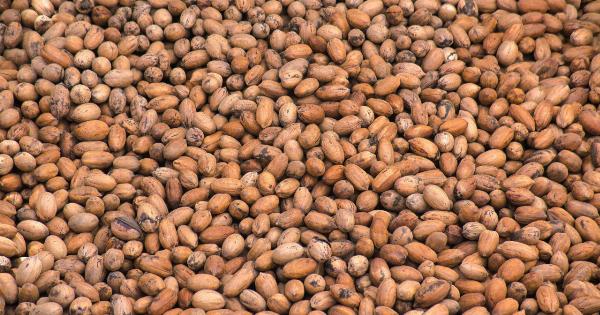Eczema is a common skin condition that affects people of all ages. It is characterized by red, itchy, and inflamed skin that can be very uncomfortable and even painful.
While there is no known cure for eczema, there are many treatments available that can help to manage the symptoms. One of the most effective ways to manage eczema is through diet. In this article, we will explore how diet can affect eczema and what foods you should be eating to help manage your symptoms.
What is eczema?
Eczema (also known as atopic dermatitis) is a chronic skin condition that causes red, itchy and inflamed skin.
Eczema is thought to be caused by a combination of genetic and environmental factors and is often associated with other allergic conditions, such as asthma and hay fever. Eczema can be triggered by a variety of factors, including stress, certain fabrics (such as wool), harsh soaps and detergents, and dry air.
How does diet affect eczema?
Diet can have a significant impact on eczema symptoms. Certain foods can trigger eczema flares, while other foods can help to soothe and heal the skin. Here are some of the ways diet can affect eczema:.
Food Allergies
Food allergies can trigger eczema symptoms in some people. Common food allergens that can trigger eczema include cow’s milk, eggs, soy, wheat, peanuts, tree nuts, fish and shellfish.
If you suspect that you have a food allergy, it is important to see an allergist for an allergy test. Once you have identified your food allergens, you can eliminate them from your diet to help manage your eczema symptoms.
Foods that can soothe eczema symptoms
While certain foods can trigger eczema flares, other foods can help to soothe and heal the skin. Here are some foods that can help to relieve eczema symptoms:.
- Foods high in omega-3 fatty acids: Omega-3 fatty acids can help to reduce inflammation in the body and can help to soothe eczema symptoms. Good sources of omega-3s include fatty fish (such as salmon and sardines), flaxseed, and chia seeds.
- Probiotics: Probiotics help to promote a healthy gut microbiome, which can in turn help to reduce inflammation in the body. Good sources of probiotics include yogurt, kefir, sauerkraut, and kombucha.
- Bone broth: Bone broth is rich in collagen, which can help to heal and soothe the skin. It is also a good source of glycine, which can help to reduce inflammation in the body.
- Leafy greens: Leafy greens are rich in antioxidants, which can help to protect the skin from damage. Good sources of leafy greens include spinach, kale, and collard greens.
- Colorful fruits and vegetables: Colorful fruits and vegetables are rich in vitamins and minerals that can help to support overall skin health. Good sources of these foods include berries, oranges, sweet potatoes, and carrots.
Foods to avoid with eczema
Just as certain foods can help to soothe and heal eczema symptoms, other foods can trigger eczema flares. Here are some foods to avoid if you have eczema:.
- Dairy: Dairy products can be a common trigger for eczema symptoms, particularly in children. If you have eczema, try eliminating dairy products (such as milk, cheese, and yogurt) from your diet to see if it helps to reduce your symptoms.
- Gluten: Some people with eczema find that gluten (a protein found in wheat, barley, and rye) can trigger their symptoms. If you suspect that gluten may be triggering your eczema, try eliminating gluten-containing foods from your diet.
- Eggs: Eggs are a common food allergen and can trigger eczema symptoms in some people. If you suspect that eggs may be triggering your eczema, try eliminating them from your diet.
- Soy: Soy is another common allergen that can trigger eczema symptoms. If you suspect that soy may be triggering your eczema, try eliminating it from your diet.
- Processed foods: Processed foods (such as packaged snacks, fast food, and frozen meals) can be high in preservatives, additives, and artificial colors and flavors, which can trigger eczema symptoms in some people. Try to eat a diet that is rich in whole, unprocessed foods.
Conclusion
Diet can have a significant impact on eczema symptoms. While there is no one-size-fits-all approach to managing eczema through diet, there are certain foods that can help to soothe and heal the skin, and certain foods that should be avoided.
By working with a healthcare provider or registered dietitian, you can develop a personalized eczema diet plan to help manage your symptoms.





























